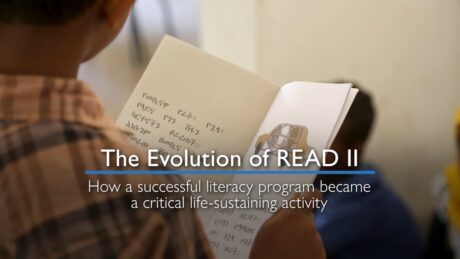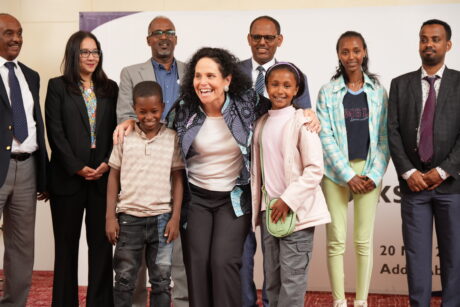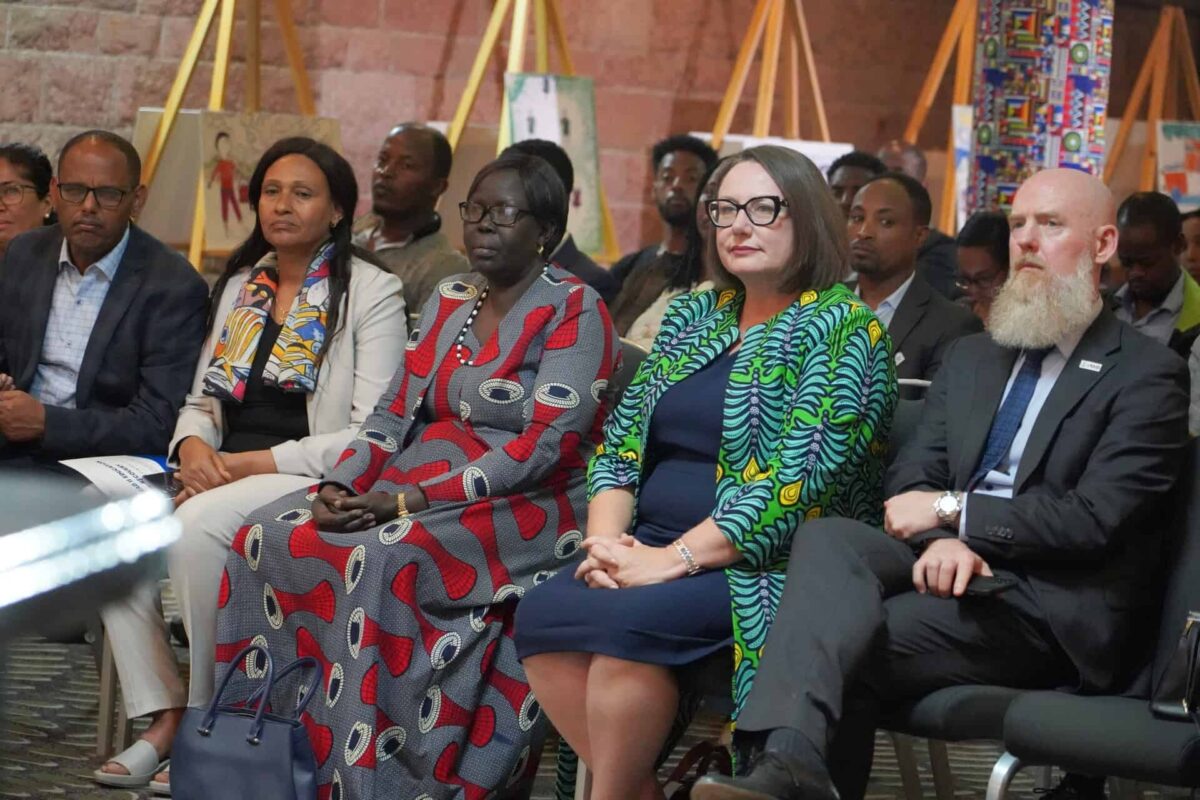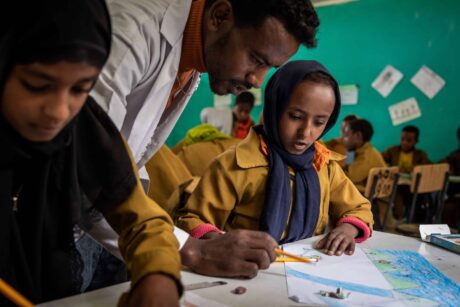WASHINGTON, DC. – Building on a successful partnership to improve reading achievement, the Government of Ethiopia and the U.S. Agency for International Development have launched a new initiative to raise the reading proficiency of 15 milhões de crianças.
Os cinco anos READ II project, financiado pela USAID, will boost the quality of literacy instruction and student support, chegar às crianças em risco de fracasso e abandono causado por problemas cognitivos, efeitos emocionais e físicos da fome, violência, and displacement.
READ II seeks to better equip teachers with effective early grade reading instruction techniques and materials in seven mother-tongue languages and English, Enquanto construía simultaneamente uma cultura de leitura na escola, casa e comunidade.
O projeto é implementado pela Creative Associates International, junto com seus principais parceiros Centro de Desenvolvimento Educacional e Visão Mundial. The program will collaborate closely with Ethiopia’s Ministry of Education, a critical partner for the program’s success, diz Leland Kruvant, Presidente e CEO da Creative.
“To create lasting success in improving literacy instruction, we have to work within the systems and make them even stronger. Our Ministry partners are key,” ele diz.
Despite gains in enrollment and improvements in education quality in recent years, 2016 USAID early grade reading assessments showed that 34 percentagem de estudantes etíopes na série 2 não conseguiram ler uma única palavra de uma história da série, enquanto 48 por cento não conseguiu responder a uma pergunta de compreensão.
By addressing these gaps in early grade reading education, the project is also working to chart a positive future for the country’s development.
“Mastering the fundamentals of early grade reading provides a foundation for success for the rest of school and life,” says Karen Tietjen, Diretor de Instruction Systems and Governance na Creative. “By focusing on these early grades, we aspire to create lifelong learners who will contribute to their family, community and country.”
The project will initially roll out its enhanced model in 3,000 escolas em todo 50 distritos, ultimately expanding a basic model to reach the targeted 15 milhões de alunos.
Um holístico, abordagem baseada em evidências
The READ II project will work to improve support and delivery systems for early grade reading at every level.
Para atender às necessidades de todos os alunos, including girls and vulnerable students, o projeto permitirá que professores, comunidades, and parents to support the whole child through differentiated instruction; um cofre, ambiente escolar amigável; materiais suficientes; e atividades para melhorar o aprendizado, noivado, and wellbeing.
While pre- and in-service teachers will be the target of an enhanced early grade reading instructional package – including support for teaching techniques and classroom management – the project will also create support systems at the school and district level to provide teachers with critical ongoing coaching, monitoring and learning opportunities.
The project will also engage the community and parents to build a culture of reading both in school, in the community and at home, working with youth volunteers to lead extra-curricular reading activities.
To ensure that students’ access to education and learning is not interrupted during times of crisis, the project seeks to establish a systemic approach to identify and rapidly respond to student and household needs.
To monitor progress, the project will support the schools and districts to establish ongoing technology-based data collection and analysis so that education officials and administrators can quickly identify challenges and take action to meet the needs of teachers and learners.
Ministry leadership for long-term success
With an eye toward sustainability and scaling up the approach nationally, the Ministry of Education will play the lead role in the project’s roll-out.
Creative and its partners will work as one team with the Ministry across six regional offices and Addis Ababa, to ensure that program interventions are embedded in Ministry systems. The project will support the Ministry to develop and implement a reading-supportive policy and framework grounded in best practices.



